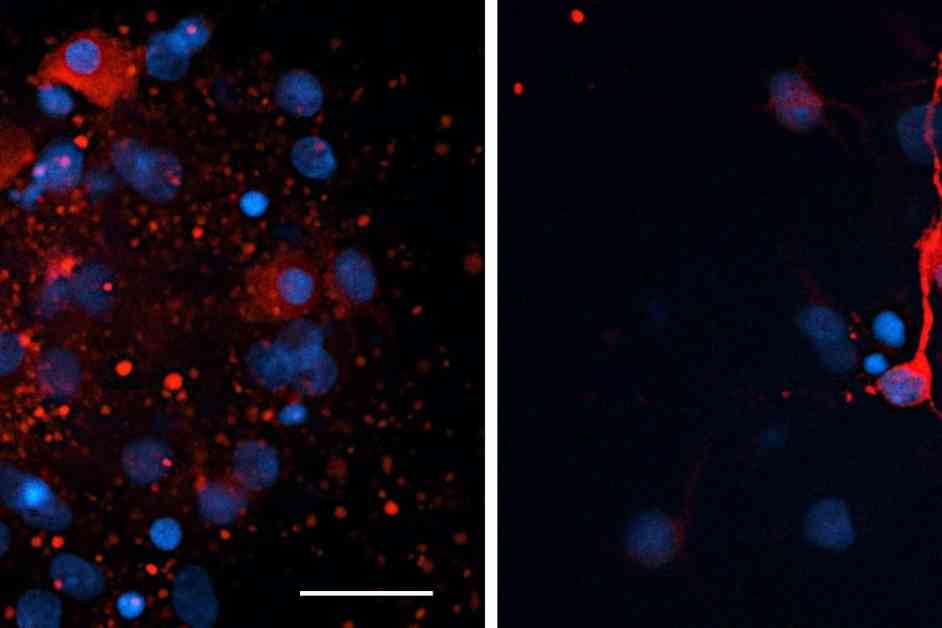Unlocking the Potential of Vitamin A-Activating Drugs to Prevent MND
Recent research has shed light on the potential of drugs that activate vitamin A in the body to help prevent conditions such as motor neurone disease (MND). This discovery has raised hopes for new treatments that could significantly impact the lives of those affected by neurodegenerative diseases. Scientists have identified specific receptors that, when targeted by these drugs, can activate the vitamin A signaling system and offer protection against the damage associated with diseases like MND.
One of the key figures behind this groundbreaking study is Professor Peter McCaffery, chairman of medical sciences at the University of Aberdeen. Professor McCaffery explains, “We discovered that these drugs bind and turn on the ‘retinoic acid receptor,’ a key protein involved in the activation of vitamin A in the body. Our research provides the first steps to identify new targets for drugs that may lead to future therapies.” This discovery opens up new possibilities for developing targeted treatments that could potentially halt the progression of MND and other similar conditions.
The Impact of MND and the Urgent Need for Effective Treatments
Motor neurone disease, also known as amyotrophic lateral sclerosis (ALS), is a devastating condition that affects thousands of adults in the UK alone. Currently, there are no treatments available that can significantly improve the condition beyond a few months. As the disease progresses, it leads to the death of motor neurons essential for muscle control, resulting in progressive muscle weakness and, in most cases, proving fatal within a few years. This underscores the urgent need for effective treatments that can slow down or even halt the progression of MND.
Andy Whiting, emeritus professor at Durham University, emphasizes the importance of finding disease-modifying drugs for neurodegenerative conditions like MND. He states, “There is a total lack of genuinely disease-modifying drugs out there for neurodegeneration in general, and ALS specifically. We are committed to changing that and delivering hope for MND sufferers in the first instance.” The potential of vitamin A-activating drugs to serve as disease-modifying treatments represents a significant step forward in the fight against MND.
The Research Process and Promising Results
To investigate the efficacy of vitamin A-activating drugs in preventing neurodegenerative diseases, researchers conducted a series of studies using neurons grown in a laboratory dish. By simulating disease conditions and applying chemicals that induce harm similar to those seen in conditions like MND, the researchers were able to assess the impact of these drugs on neuronal survival. Azita Kouchmeshky, a neuroscientist at the University of California in San Francisco and co-author of the study, explains, “The application of drugs that bind to the retinoic acid receptor significantly reduced the number of cells that died off, offering promising results for potential therapeutic interventions.”
Furthermore, these drugs were tested in mice, where they induced changes that suggest they may also be effective in a living organism. This translational research from lab studies to animal models highlights the potential of vitamin A-activating drugs to be developed into treatments that could benefit individuals living with MND and other neurodegenerative conditions.
The Path Towards New Therapeutics and Hope for MND Sufferers
The research team’s findings, published in Frontiers in Neuroscience, mark a significant milestone in the quest for effective treatments for MND. Andy Whiting, chief executive of Nevrargenics Ltd, designed and synthesized the drugs used in the study and underscores the importance of developing new therapeutics for globally challenging diseases like MND. He states, “We are committed to changing that and delivering hope for MND sufferers in the first instance. This is one further step along the road to deliver new therapeutics for such globally challenging diseases.”
The research was made possible through funding from the Chief Scientist Office, the Sprint-MND/MS PhD program, and the Motor Neurone Disease Association. Dr. Nicholas Cole, head of research at the MND Association, expresses optimism about the potential of this early work to lead to the discovery of new therapies that could undergo clinical testing. Collaboration and public support will be essential in unraveling the complexities of MND and developing effective treatments that can improve the lives of those affected by this devastating condition.
In conclusion, the study’s findings on the potential of vitamin A-activating drugs to prevent MND offer a glimmer of hope for individuals living with neurodegenerative diseases. By targeting specific receptors involved in activating vitamin A, these drugs show promise as disease-modifying treatments that could slow down or even halt the progression of conditions like MND. Continued research and collaboration in this field are essential to translating these promising results into tangible therapies that can make a difference in the lives of those affected by MND.












